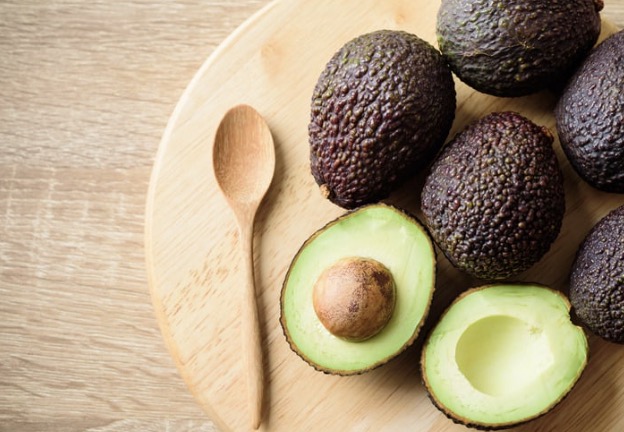We generally think of stress as an inherently “bad” thing, but the truth is that stress itself can be a good or bad thing! By definition, stress is “a physiological response that is necessary for the survival of the species.”
Eustress is a good kind of stress—it motivates us to make a positive change to better stabilize our environments. For example, when we’re hot, we start to sweat and maybe drink some cool water or move to stand in the shade. The stress put on our bodies from the temperature change motivates us to make changes that cool us down.
Distress, on the other hand, is the type of stress that ‘overwhelms’ us and exceeds our resources (meaning we don’t know how or can’t deal with it). These types of stressors might be anything from the death of a family member, to a deadline at work or a health diagnosis…I’m sure we can all think of a few more.
When we’re stressed, our sympathetic nervous system is activated, and as I said before, this can be a good thing. It’s sometimes referred to as our fight-or-flight reflex. If a bear starts to chase you, the stress you feel is converted into adrenaline, and you will be able to divert all your blood and energy into your muscles to get as far away from the threat as possible.
But our bodies were not designed to have our sympathetic, fight-or-flight nervous system activated for long periods of time. Cortisol is a stress hormone that is released with heightened activation of our sympathetic nervous system, and it can really wreak havoc on our bodies if left unchecked.
Increased levels of cortisol in your body can lead to atrophy (shrinking in the brain), and premature brain aging, and it can also speed up dementia diseases like Alzheimer’s.
The levels of stress hormones we have circulating around our bodies are also very dependent upon diet. Our levels of cortisol can also be mediated by the foods and drinks that we consume! For example, high-fat diets have been shown to increase our levels of cortisol and, sometimes when we’re stressed, we reach for those higher-fat, higher-sugar foods to comfort us, but really they’re just making it worse.
Stress can also lead to food cravings and make us feel less full than we actually are. So when you’re stressed, you might eat more than your body actually needs, because you’re brain is not wasting energy telling you that you’re full.
Reading all of that can be intimidating! It’s obvious that stress isn’t great for our brains or our bodies, but what can we do about it? Are we powerless to stop the cycle?
The answer is (and I hope you guessed it) NO! There are lots of things we can do to combat stress, and practicing what psychologists call “mindfulness” can be a big one. Mindfulness just means we’re focusing on the present moment, and not wasting all our time, effort, and energy on the past, an area we can not change or on the future, an area in which we can’t predict.
Decreasing our workload can also help greatly with stress. If we’re honest with ourselves, we have the power to say no 100% of the time, but we don’t often use it. You’re not a bad Christian or mother if you can’t help out and be a part of every little thing your church or child does, so give yourself some grace and practice the ancient art of saying no.
Obviously, eating a balanced diet that avoids high-fat, high-sugar foods is going to do wonders for your body, brain, and stress levels, as well as trying to get in some form of physical activity each day.
And, of course, JESUS! Jesus is our greatest friend, comforter, and caretaker, so spending time with him and keeping our minds focused on his kingdom will do wonders for all types of stress.
Did you know dancing has actually been shown to be a great stress reliever? Come join us for a FREE PAZAZ workout and dance that stress away!
REFERENCES
Avison, William R., and R. Jay Turner. “Stressful Life Events and Depressive Symptoms: Disaggregating the Effects of Acute Stressors and Chronic Strains.” Journal of Health and Social Behavior 29.3 (1988): 253. Web.
Baran, Sarah E., Adam M. Campbell, Jonathan K. Kleen, Cainan H. Foltz, Ryan L. Wright, David M. Diamond, and Cheryl D. Conrad. “Combination of High Fat Diet and Chronic Stress Retracts Hippocampal Dendrites.”NeuroReport 16.1 (2005): 39-43.
Chao, A., C. M. Grilo, M. A. White, and R. Sinha. “Food Cravings Mediate the Relationship between Chronic Stress and Body Mass Index.” Journal of Health Psychology 20.6 (2015): 721-29.
Fuller, James. “Influence Of Drying/Conditioning Schedules On Stress Development, Relief And Prong Test.” Drying Technology 17.10 (1999): 2237-249. Web.
Lupien, Sonia J., Bruce S. McEwen, Megan R. Gunnar, and Christine Heim. “Effects of Stress throughout the Lifespan on the Brain, Behaviour and Cognition.” Nature Reviews Neuroscience Nat Rev Neurosci 10.6 (2009): 434-45











